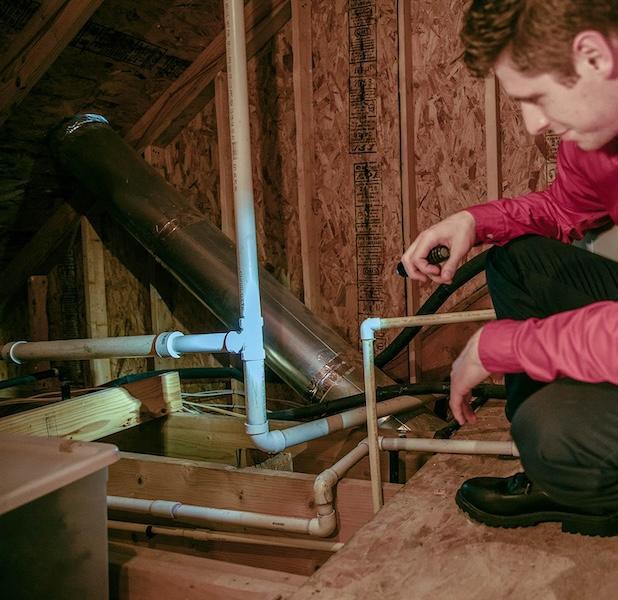Call This Wednesday to Get $50 Off Any service over $500
Do You Need a Local Plumber in Waco, TX?
Call us Now to Get $35 OFF.
Call This Wednesday to Get $50 Off Any service over $500
Do You Need a Local Plumber in Waco, TX?
Call us Now to Get $35 OFF.

When it comes to selecting plumbing materials for repiping a home or business, copper and cross-linked polyethylene (PEX) piping are two of the most popular options. Each has its own set of strengths and weaknesses, and the right choice depends on your specific needs, budget, and long-term goals.
To help you make an informed decision, the professionals at Mr. Rooter Plumbing helped put together this brief guide comparing and contrasting the two options. If you’d rather consult with a trained plumber, then call Mr. Rooter Plumbing to schedule a face-to-face meeting or on-site visit.
Copper piping has been the go-to option for plumbing for decades. However, the installation process is labor-intensive because copper pipes need to be soldered at each joint. This not only adds to the labor cost but also makes the process slower.

PEX piping, on the other hand, is much easier to install. PEX is flexible, meaning it can be bent around corners without needing multiple fittings. It’s also available in long rolls that require fewer joints; this reduces potential weak points. Moreover, installing PEX typically involves crimping the pipes to fittings with specialized tools. In short, installing PEX is faster and requires less skill than soldering copper pipes.
All in all, both the material and installation costs of PEX piping are lower.
Copper pipes are known for their durability and ability to withstand extreme temperatures. They are resistant to bacteria growth and don’t leach harmful chemicals into the water. Sadly, copper pipes can be prone to corrosion over time. Corrosion can lead to pinhole leaks which can go unnoticed until they cause significant water damage. Copper is also awfully vulnerable to freezing temperatures.
PEX pipes, meanwhile, are highly resistant to corrosion and mineral buildup. Since PEX is flexible, it is also less likely to burst in freezing conditions. The drawback, however, is that PEX pipes are NOT UV-resistant. Long-term exposure to UV rays can degrade the material and cause cracks and leaks. Fortunately, plumbing is generally installed behind walls or under floors.
Copper pipes are known for their longevity. When properly maintained, they can last 50 years or more. In many cases, copper pipes can last as long as the building itself, making them a solid long-term investment.
Because PEX is a relatively new material, its life expectancy is merely an estimate. PEX piping is expected to last around 40 to 50 years thanks to its resistance to scale buildup and corrosion as well as its flexibility.
Choosing between copper and PEX will depend on your unique needs and preferences. Here are some factors to consider:
If you are considering a pipe repair or replacement, then consider hiring trained and experienced plumbers from a reputable company like Mr. Rooter Plumbing.
Whether you need routine plumbing service or a comprehensive repiping, the uniformed and seasoned plumbers at Mr. Rooter Plumbing are ready, willing, and able to help. Call or message us today to get in touch with a member of our team.
If your pipes have seen better days, you may have noticed frequent leaks, discolored water,…
No matter where you live in Texas, you know how unpredictable the weather can be.…
A common nuisance in many homes is a dishwasher that won’t drain, resulting in dirty…